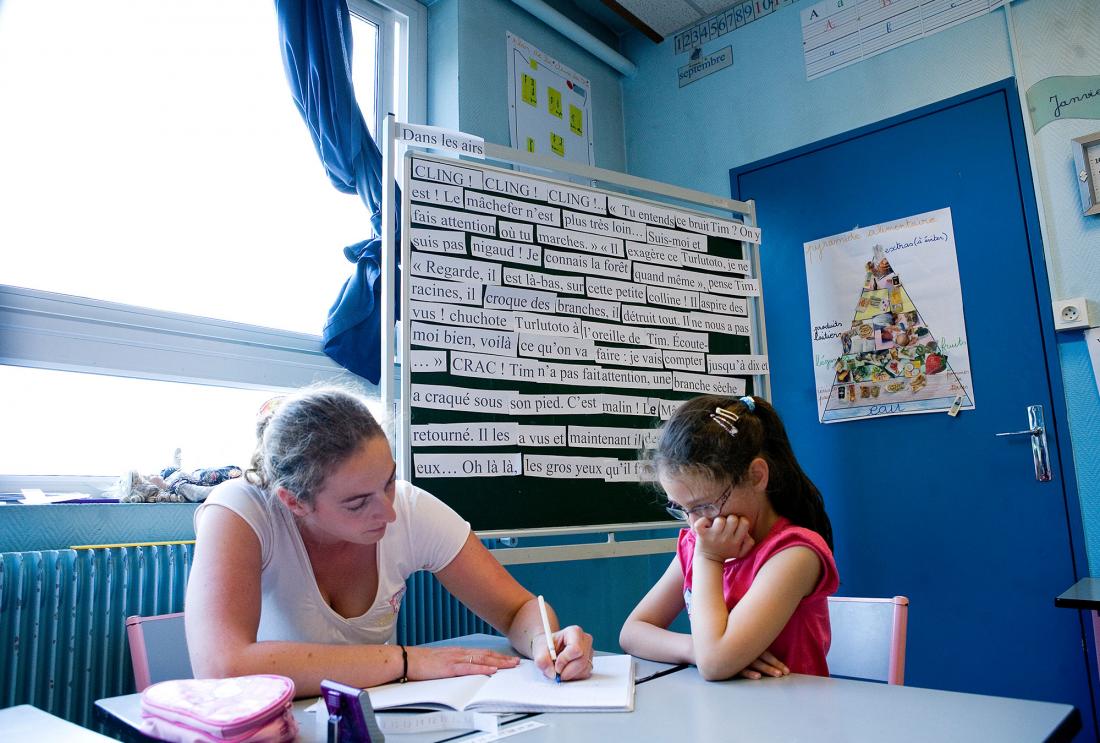Recreational Tutoring to Fight Early-Age School Difficulties in France (APFEE)
- Primary schools
- Students
- Student learning
- Training
Researchers assessed the impact of a recreational tutoring program on students’ academic achievements and interest for school work provided by the NGO Apfee. Researchers found that children identified as falling behind by their teachers in schools where the tutoring program was offered did not improve their reading or math skills, although they developed a taste for reading and academic subjects. These results hold two years after the implementation of the program.
Policy issue
Difficulty with reading and writing can emerge very early in a child's educational career. If these problems are not addressed at an early stage, children can fall further and further behind in class, making it even more difficult for them to succeed to school. Additionally, unaddressed learning difficulties can lead to low self-confidence and frustration, which could compound the problem. For this reason, identifying and addressing learning difficulties early in school is an important challenge for any education system.
Context of the evaluation
The evaluation took place in the school districts of Créteil, Lille, and Versailles. Most schools included in the program serve locations with high portions of recent and second-generation immigrants, with many low-income households.

Details of the intervention
Researchers assessed the impact of a recreational tutoring program on students’ academic achievements and interest for schoolwork provided by the NGO Apfee.
Early in the school year, 261 grade 1 teachers from 109 primary schools selected five students from their class who were having significant trouble with their schoolwork. These students were then sorted into 189 groups of five students each. Two-thirds of the schools (125 groups of students) were randomly assigned to receive the recreational tutoring program throughout the year, while the remaining schools (64 groups of students) were assigned to the comparison group, and did not receive the program.
Children whose school was randomly selected to participate in the recreational tutoring program received four 1.5-hour sessions each week for the remainder of the year. During the sessions, children did not follow a structured training program, as recommended by some of the educational literature, but rather read books and played games around words. The objective was to compensate for low socioeconomic background by offering the kind of informal activities that are usually performed in families from a higher socioeconomic status. These tutoring sessions took place after school hours, and were led primarily by school teachers recruited by the NGO. In addition, counseling was provided to parents on how they could support their child’s learning process at home.
Researchers then followed students over the course of two years. The data collected includes individual surveys, standardized tests in reading and writing, as well as administrative datasets.
Results and policy lessons
The after-school tutoring program was implemented alongside other remedial education programs offered in all public schools. Selected students in intervention and comparison schools received personalized tutoring, either through the after-school tutoring program (in intervention schools) or through institutional in-school and after-school tutoring programs (in comparison schools). This evaluation therefore measured the impact of substituting the after-school tutoring program designed by Apfee in place of the standard remedial education schemes offered in all schools.
Researchers found that children identified as falling behind by their teachers in schools where the tutoring program was offered did not improve their reading or math skills, although they developed a taste for reading and academic subjects. These results hold two years after the implementation of the program.




